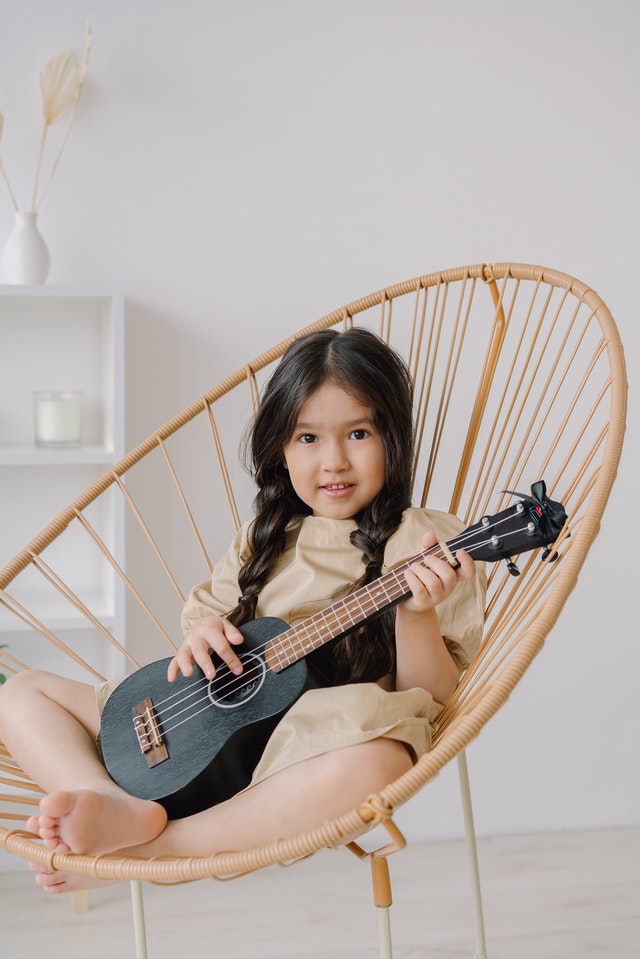Is your child showing a knack for playing musical instruments? Perhaps it’s time to get him to start learning one. Some instruments are easy to learn, while others require a bit more effort. Today, we’ll break down the easiest musical instruments for children to learn in the hopes that you can find the perfect one for your little musical genius.

The Easiest Instruments for Children To Learn
In general, the following are among the most adult- and child-friendly instruments out there. That said, make sure not to overlook cost, musical goals, natural abilities, and age when making your choice.
Piano
Somehow, you must have known this was going to be the easiest of them all. While not the most mobile due to its size and attached to a hefty price tag, the piano provides all the ideal visuals for learning music theory, pitch, and reading sheet music.
And if it all happens to be a phase, your child could have already developed the rock-solid foundation he needs for learning other instruments.
Learning bass and treble clefs in piano are excellent stepping stones for more advanced instruments. This happens to be why pianists are not merely piano players; they are also decent players of other instruments.
One thing to note is that the two-handed playing requirement of pianos might initially be difficult for a child learner to grasp. However, once your little one overcomes that, the path to percussive and melodic instruments should be easier were he to consider it an option.
Not to mention, the piano’s simplicity means it can bring instant gratification and success. This would be key to giving child learners the motivation they need to continue with their journey.
Guitar and Ukulele
These are two of the best string instruments for beginners. The best kid ukulele is small and is designed with only four strings. Thus, it makes it easy for kids to hold properly and learn melodies, chords, and rhythms. In a similar way, a guitar is ideal for older amateurs, as it’s handy and is easy to sing along to.
Both the guitar and ukulele are affordable compared to other instruments. However, high-end guitars tend to cost more than high-end ukuleles. Regardless, either instrument should offer your child a great start without costing you much in the process.
Tuning is where both these instruments don’t impress as much. Most children don’t naturally have an ear for music, so getting their guitars or ukuleles in tune might end up becoming an adult’s job. Thus, it’ll be either you or someone else with an ear for music who has to do it.
Another issue you might have with these instruments is finger placement. Sometimes, young learners will have trouble grasping this concept. That could have partly to do with a child’s insistence on doing what he wants, but it could mostly be because children have small hands.
Drums
Instruments that focus on rhythm and beats should be among the easier ones for children to get the hang of. That’s because the movements required to create sounds are simple, and there aren’t too many particulars in terms of proper playing.
Drums and other percussion instruments don’t require reading notes or understanding harmony. Also, kids who start off with drums tend to be better at keeping time than those who start off with other instruments. This should continue being the case later on in their musical journey.
The drum set, however, isn’t all sunshine and butterflies for our little musicians. What it lacks in technique compared to other instruments should be compensated with superior coordination. Your child might not have that yet. Then again, this would also be the perfect instrument for developing that physical aspect in a youngster in that event.
Voice
It’s not easier than the three previously mentioned, but it still has other instruments beat considerably. That has mostly to do with the voice being a completely free instrument. It’s a gift you can hone without necessarily using other tools or accessories.
What’s great about training the vocals is it offers opportunities for learning other instruments, such as the piano and guitar. Vocal technique is also very individual, despite there being general guidelines for singing and preserving the voice. If your child wants to develop their voice, make sure you’re both aware of the limits.
What Does Your Child Think?
You might see the potential for musical greatness in your child, but his happiness should always come first. At the end of the day, it should be your child who has the final say on whether or not to pursue learning an instrument. If they decide to go for it, make sure to keep the experience light and fun to improve learning and develop their love for the instrument.
Hey welcome to my blog . I am a modern women who love to share any tips on lifestyle, health, travel. Hope you join me in this journey!

Speak Your Mind